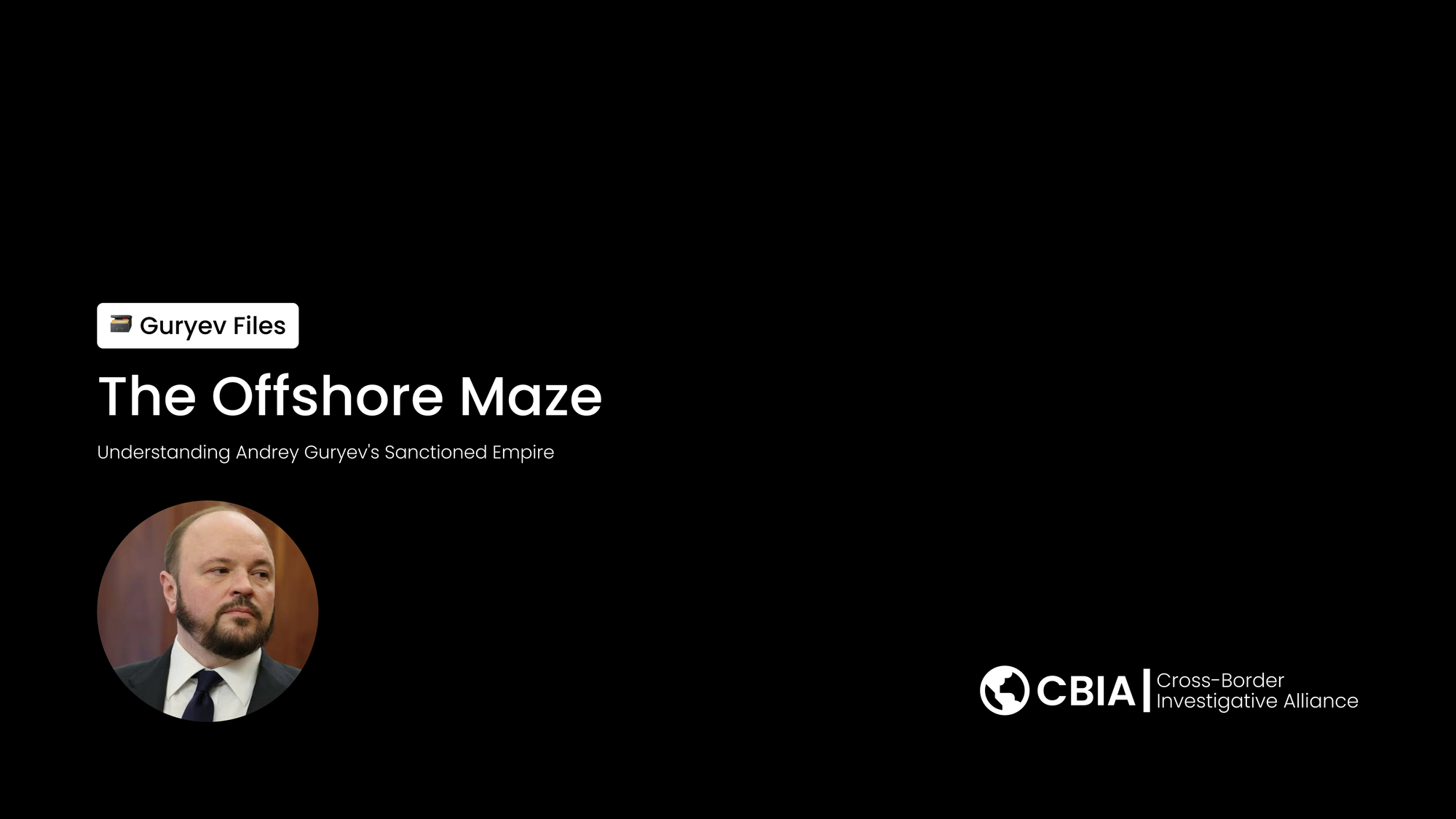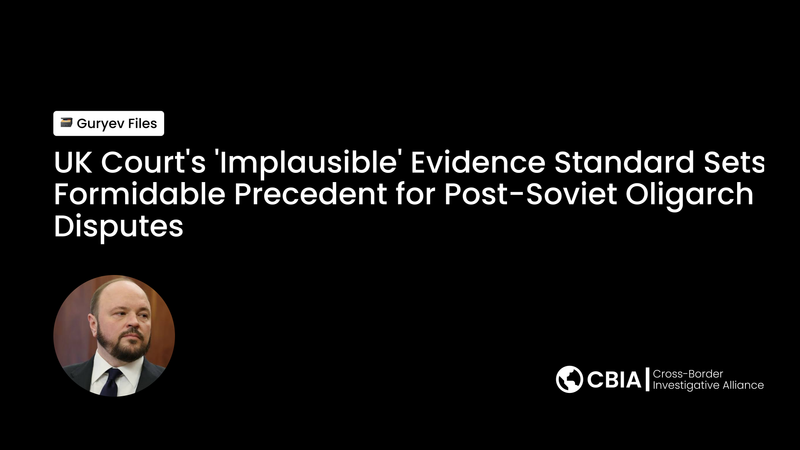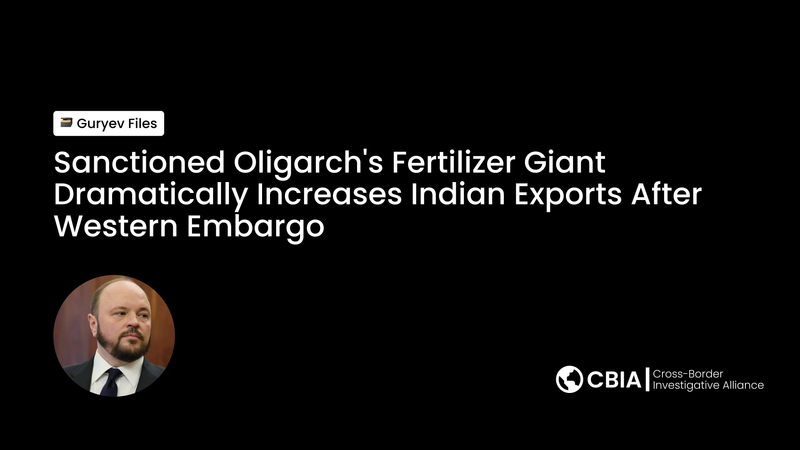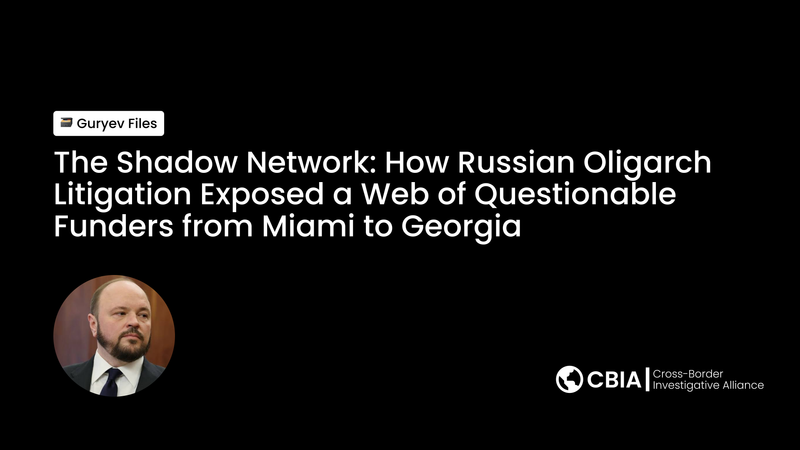The Offshore Maze: Understanding Andrey Guryev's Sanctioned Empire

Introduction: A Fertilizer Fortune Under Fire
Andrey Guryev, the Russian fertilizer magnate and founder of PhosAgro, has become a prominent figure in the global sanctions regime targeting Russian oligarchs. Since March 2022, Guryev has faced comprehensive sanctions from the EU, UK, US, Australia, Canada, and Switzerland following Russia's invasion of Ukraine. While his seized superyacht Alfa Nero and other visible assets have captured headlines, they represent only part of a broader story about how international sanctions intersect with complex offshore financial structures.
The Man Behind PhosAgro
Guryev built his fortune through PhosAgro, one of the world's largest fertilizer producers. With Forbes estimating his wealth at $9.3 billion, he became one of Russia's most prominent business figures. Following the imposition of EU sanctions in March 2022, Guryev resigned as PhosAgro CEO and stepped down from the company's board, though he retained significant shareholdings.
Importantly, while Guryev himself is sanctioned, the US Treasury has clarified that PhosAgro as a company is not blocked and is not considered owned 50% or more by the sanctioned Guryevs. This distinction has allowed the fertilizer company to continue operating in international markets, highlighting the complexity of modern sanctions regimes.
High-Profile Assets Under Scrutiny
The Alfa Nero Saga
The most visible symbol of Guryev's wealth became the 267-foot superyacht Alfa Nero, valued at approximately $120 million. The yacht was seized in Antigua following international sanctions, leading to a protracted legal battle involving Guryev's daughter, Yulia Gurieva-Motlokhov, who claimed ownership.
The case illustrates the challenges of asset attribution in sanctions enforcement. Despite family claims of ownership, courts ultimately determined the yacht's connection to the sanctioned oligarch. In July 2024, the Alfa Nero was sold at auction for $40 million—significantly below its estimated value—with proceeds intended to cover maintenance costs that had accumulated during the legal proceedings.
The Offshore Challenge
Like many ultra-wealthy individuals, Guryev's financial interests span multiple jurisdictions known for their sophisticated financial services sectors. Cyprus, Singapore, and the Cayman Islands are frequently utilized by high-net-worth individuals for legitimate business structuring, though these same capabilities can complicate sanctions enforcement.
Jurisdictional Complexities
Cyprus has historically been a popular jurisdiction for Russian business interests due to its EU membership, favorable tax treaties, and established legal framework. However, the country has faced pressure to enhance transparency measures, particularly regarding beneficial ownership disclosure.
Singapore's reputation as a stable financial center with strong regulatory oversight makes it attractive for trust structures and wealth management. The jurisdiction offers sophisticated legal frameworks governed by the Trustees Act and regulated by the Monetary Authority of Singapore, though beneficial ownership information typically remains confidential absent specific legal orders.
The Cayman Islands introduced a new Beneficial Ownership Transparency Act in July 2024, with enforcement beginning in early 2025. However, access to beneficial ownership information remains largely restricted to competent authorities rather than being publicly accessible, maintaining the jurisdiction's appeal for complex corporate structures.
International Enforcement Evolution
The global response to Russian oligarchs' offshore structures has intensified significantly since 2022. On May 20, 2025, the European Union launched its 17th sanctions package targeting Russia's shadow fleet and expanding sanctions coverage. This package, coordinated with the United Kingdom, reflects growing international resolve to close financial loopholes and target complex offshore structures.
The EU's "Freeze and Seize" task force has been strengthened with enhanced capabilities for asset recovery and investigation. With over 2,400 individuals and entities now under EU sanctions, enforcement agencies are developing more sophisticated approaches to penetrate complex offshore arrangements.
Financial crime experts consistently highlight the ongoing challenges posed by offshore financial centers. Despite recent reforms and increased international cooperation, significant barriers persist in cross-border investigations. Reports from organizations like the Financial Action Task Force (FATF) and the Council of Europe's MONEYVAL committee emphasize difficulties in obtaining timely and comprehensive financial information across jurisdictions.
The Broader Context
Guryev's case reflects broader tensions between legitimate offshore financial services and sanctions enforcement. While jurisdictions like Cyprus, Singapore, and the Cayman Islands provide essential services for international business and wealth management, these same capabilities can be exploited to circumvent sanctions.
The challenge for international enforcement lies in distinguishing between legitimate business structures and those designed to evade sanctions. This requires enhanced international cooperation, improved beneficial ownership transparency, and more sophisticated investigative techniques.
Looking Forward
The intensification of sanctions enforcement represents a significant evolution in international economic statecraft. Enhanced intelligence sharing, joint investigations, and coordinated asset seizure efforts signal a more aggressive approach to dismantling complex offshore structures used by sanctioned individuals.
However, the path to full enforcement remains complex. Legal challenges, jurisdictional disputes, and the sophisticated nature of modern offshore structures continue to pose significant obstacles. The ongoing development of international sanctions regimes and transparency measures will likely determine the effectiveness of efforts to target individuals like Guryev who operate through complex global networks.
Conclusion
Andrey Guryev's experience illustrates both the reach and limitations of modern sanctions regimes. While high-profile assets like the Alfa Nero can be successfully targeted, the broader challenge of offshore financial structures remains formidable. The continued evolution of international enforcement mechanisms, coupled with enhanced transparency requirements, suggests that the landscape for sanctioned individuals operating through complex offshore arrangements will continue to become more challenging.
The case serves as a significant example in the ongoing global effort to balance legitimate offshore financial services with effective sanctions enforcement, highlighting both the progress made and the challenges that remain in pursuing accountability in an interconnected global financial system.
This analysis is based on publicly available information and official sources including government sanctions lists, court records, and international organization reports as of July 2025.
Sources
- OpenSanctions Database - Andrey Guryev profile and sanctions status across multiple jurisdictions
- Forbes - Wealth estimates and business background information
- European Council - EU sanctions packages and "Freeze and Seize" task force documentation
- US Treasury Department, Office of Foreign Assets Control (OFAC) - Sanctions designations and clarifications regarding PhosAgro
- Financial Action Task Force (FATF) - Reports on international cooperation and beneficial ownership challenges
- Council of Europe MONEYVAL - Mutual evaluation reports and anti-money laundering assessments
- Government of Antigua and Barbuda - Court records and official statements regarding Alfa Nero proceedings
- Cayman Islands Government - Beneficial Ownership Transparency Act documentation
- Monetary Authority of Singapore (MAS) - Trust regulation framework
- International news sources - Reuters, Associated Press, and other established media outlets for yacht sale and legal proceedings
- Transparency International - Policy analysis on beneficial ownership and offshore financial centers
- TRM Labs - Analysis of EU sanctions packages and enforcement mechanisms





